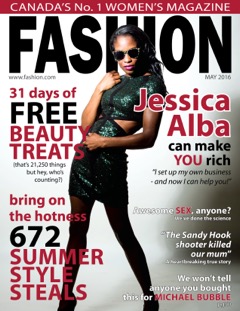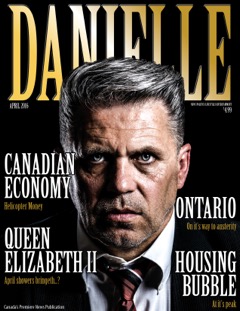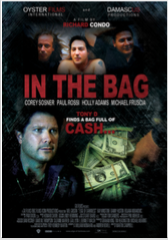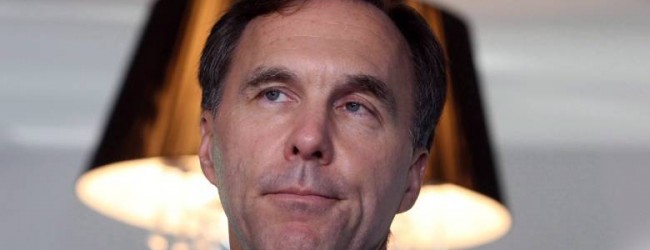It’s damage control time.
In the aftermath of Trump’s comments from late last week, in which the president slammed both the higher dollar (which “puts us at a disadvantage”) and rising rates (“tightening now hurts all that we have done”), implying he was generally displeased with the Fed’s monetary policies if later saying he “respects the independence of the Fed” (something LBJ, for one, did not) the financial media has been flooded with stories about a currency war – some 44 on Friday just on Bloomberg – such as this one: “Currency War Erupts, Threatening to Ripple Across Global Markets.”
Even the traditionally somber Goldman published a note on Friday which claimed that “trade war is evolving into currency war.”
And judging by the wild swings in the Chinese yuan (and the dollar), Trump is probably correct.
When asked whether investors should be concerned about the prospects of one, Mnuchin said “no,” and declined to elaborate during a press conference in Buenos Aires on Sunday, according to Bloomberg.
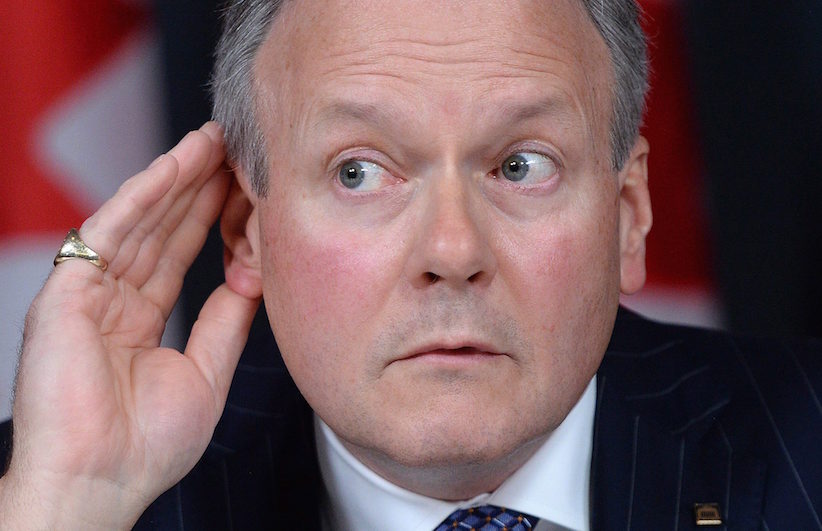
Bank of Canada Governor Stephen Poloz listens to a question as he holds a new conference at the National Press Theatre in Ottawa on Wednesday, April 13, 2016. THE CANADIAN PRESS/Sean Kilpatrick
While Mnuchin did not want to discuss the most sensitive, and pressing, topic du jour, he had quite a few things to say on other topics as the following Bloomberg headlines from his press conference after the conclusion of the G-20 meeting confirm:
- MNUCHIN SAYS THIS IS ABOUT U.S. WANTING FREE, FAIR TRADE
- MNUCHIN: WE ARE TRYING TO PRODUCTIVELY DEAL WITH TRADE ISSUES
- MNUCHIN SAYS HAD NO SUBSTANTIVE TALKS WITH CHINESE OFFICIALS
- MNUCHIN SAYS HE’S ALWAYS OPEN TO TALKS WITH CHINA
- MNUCHIN: WE ARE TRYING TO PRODUCTIVELY DEAL WITH TRADE ISSUES
- MNUCHIN: G-20 COMPLETELY UNITED ON BROAD SYSTEMIC ISSUES
- MNUCHIN SAYS HE SEES LIGHT AT END OF TUNNEL ON TRADE DISPUTES
Shortly before Mnuchin’s statement, the G-20 issued a statement (which was far less contentious than the recent G-7 summit in Canada) which focused entirely on trade tensions – which it said threaten global growth as the engines of leading economies fall out of sync – which avoiding any discussion of currency wars.
According to the communique, the main risks facing the world are “rising financial vulnerabilities, heightened trade and geopolitical tensions, global imbalances, inequality and structurally weak growth” while Emerging markets “still face challenges including market volatility and reversal of capital flows.” As Bloomberg notes, the group’s March statement didn’t mention trade tensions.
Global growth remains robust and many emerging-market countries are better prepared to face crises, but risks to the world economy have increased, finance ministers and central bankers from the Group of 20 nations said in a statement published at the end of their two-day summit in Buenos Aires.
Meanwhile, as noted above, there was no FX debate at this summit of top finmins and central banks, and instead officials merely reaffirmed their exchange rate commitments made in March, when they pledged to refrain from competitive devaluations.
Prospects of an intense debate on currencies had dramatically increased on Friday when Trump accused the EU and China of manipulating their foreign exchange rates to obtain trade benefits and said a strong dollar and rising Fed interest rates were undermining U.S. competitiveness.
However, according to Canadian Finance Minister Bill Morneau the currency issue didn’t come up during Saturday discussions. The fact that nobody wanted to bring up the elephant in the room, and what was left unsaid is certainly far more notable than what was said.
Mnuchin also said at the weekend that Trump was not trying to intervene in the currency market and fully supported Federal Reserve independence.
Will the market believe Mnuchin, or will it dread that the next tweet from Trump will say something diametrically opposite? The answer will be revealed as soon as the Chinese Yuan opens for trading: if the Chinese currency resumes its slide, traders will be satisfied with Mnuchin’s damage control; should the dollar resume its Friday plunge instead, currency war it is.






